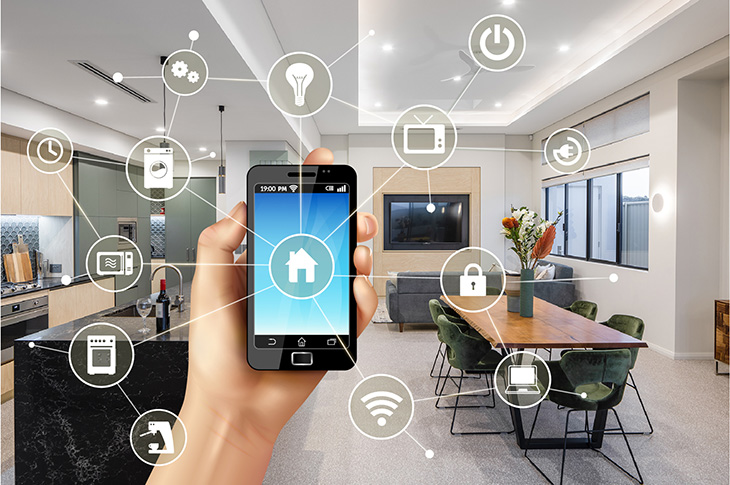Rise by Six: Your Daily Dose of Inspiration
Explore insights and stories that elevate your day.
Smart Homes or Smart Fools? The Tech Dilemma
Explore the fine line between convenience and dependency in the smart home revolution. Are we living smarter or just fooling ourselves?
Are Smart Homes Worth the Investment? Exploring the Pros and Cons
Smart homes have gained significant traction in recent years, offering a range of advantages that many homeowners find appealing. One of the primary pros of investing in smart home technology is the potential for increased energy efficiency. For instance, smart thermostats can adapt to your schedule and preferences, ultimately leading to reduced energy consumption. Additionally, features such as smart lighting systems and automated window treatments enable homeowners to optimize their energy usage further, leading to cost savings on utility bills. Enhanced convenience is another compelling advantage; with centralized control over various devices, homeowners can manage everything from security systems to home appliances through a single app or voice command.
However, despite the numerous benefits, there are also notable cons associated with making your home 'smart'. The initial investment can be considerable, particularly for comprehensive systems that integrate multiple devices and technologies. Furthermore, concerns regarding privacy and security are prevalent, as the connectivity that makes smart devices convenient can also leave them vulnerable to hacking. Lastly, technological obsolescence is another factor to consider; as technology advances, older devices may become outdated, necessitating further investment to keep up with the latest innovations. Weighing these factors is essential when determining whether a smart home is worth the investment for your specific situation.

The Security Risks of Smart Home Devices: Are You a Smart Fool?
As the popularity of smart home devices continues to rise, so does the concern over potential security risks. These devices, ranging from smart speakers to connected thermostats, often collect vast amounts of personal data and are connected to the internet. This connectivity, while offering convenience, also creates vulnerabilities that hackers can exploit. For instance, an insecure Wi-Fi network can be an open door, allowing intruders to gain unauthorized access to your home network and compromising not just the smart devices but also personal data stored on them.
Furthermore, many consumers may be unaware of the importance of securing their smart home devices. It's crucial to regularly update device firmware, change default passwords, and use strong, unique credentials for each device. Failing to do so might label you as a smart fool, putting your privacy and security at risk. Take proactive measures to audit your smart home setup:
- Ensure Wi-Fi networks are secure.
- Regularly review and update privacy settings.
- Research device manufacturers and their past security practices.
Smart Home Technology: Friend or Foe? Unpacking the Dilemma
The emergence of smart home technology has transformed the way we interact with our living spaces, offering unparalleled convenience and control. With devices capable of automating everyday tasks—from adjusting the thermostat to managing security systems—many homeowners now view this technology as a valuable ally in enhancing their quality of life. However, as we embrace these innovations, we must consider the implications they carry. The proliferation of internet-connected devices raises significant concerns about data privacy and security, prompting a vital question: Is our reliance on smart technology a wise choice or a double-edged sword?
On one hand, advocates argue that smart home technology contributes to greater energy efficiency, improved home security, and a streamlined lifestyle. For instance, with temperature regulation systems that adapt to our routines or smart locks that allow for remote monitoring, the benefits seem compelling. Conversely, critics highlight the potential risks associated with these advancements, including hacking threats and the erosion of personal privacy. As we unpack this dilemma, it becomes clear that the acceptance of smart technology requires a careful evaluation of both its benefits and drawbacks, urging consumers to make informed decisions based on their values and needs.